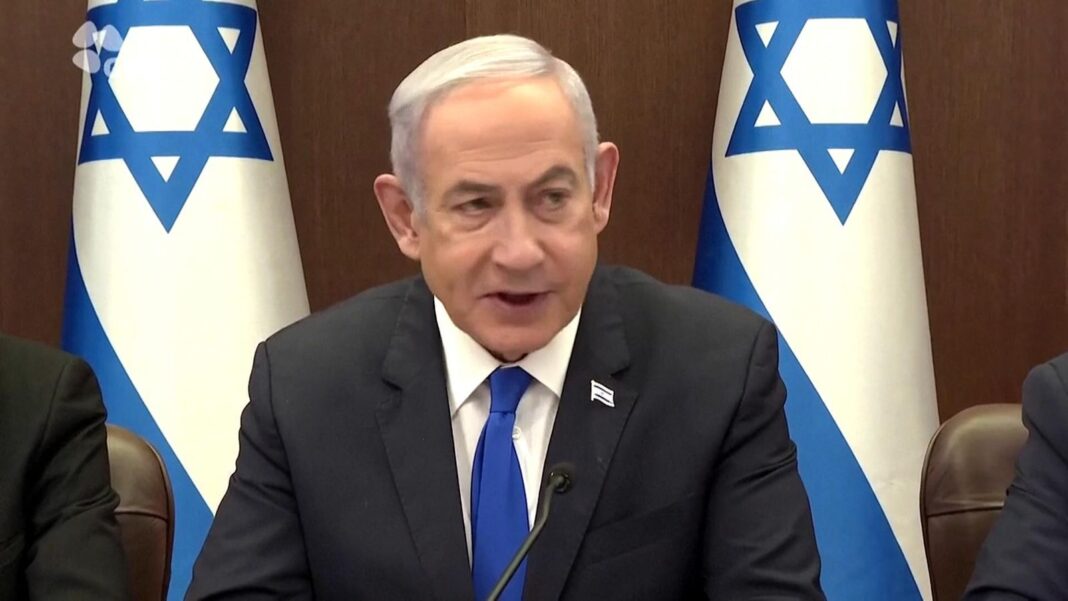Throughout his career Benjamin Netanyahu has been a generally cautious politician, either deferring decisions or taking the least incendiary options.
There’s a school of thought in Israel that he had no choice but to act after the Iranian barrage of missiles and drones.
To not do anything would have flown in the face of decades of Israeli security policy.
How then to deal with the strike and balance different international and domestic pressures?
Middle East latest: Worshippers in Tehran chant ‘death to Israel’ after strike
Certainly, allies like the US were suggesting that after the successful interceptions and defence of the nation he should “take the win”.
But members on the far-right of his right-wing coalition were urging him to go “berserk” – the logic being that only a forceful overreaction would restore Israel’s deterrence in the region.
More on Benjamin Netanyahu
Read more:
Key moments in the Middle East this week
Iran calls Israeli strike ‘infiltration’ as it downplays attack on Supreme Leader’s birthday
It is why his radical national security minister, Itamar Ben Gvir, has labelled the Israeli response as “lame” on social media.
Strong words yes, but he is unlikely to cause a major headache on the Iranian question.
Mr Netanyahu’s far-right coalition members are thought much more likely to be very demanding when it comes to Gaza.
There the Israeli PM could find himself being given red lines when it comes to who rules the strip when the fighting stops.
Keep up with all the latest news from the UK and around the world by following Sky News
Mr Netanyahu may also be compelled into taking action in the southern city of Rafah.
The US and others have strongly objected to such an operation because it would make the humanitarian situation even more dire.
The bottom line is, when it comes to making things difficult, it will be the Palestinian question, if anything, not Iran, that sinks the coalition and puts Mr Netanyahu in a tight spot.







